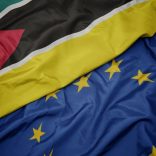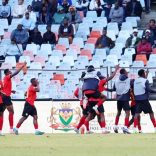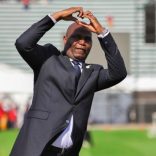Range of bilateral agreements expected at Mozambique–Portugal summit – diplomat
Congo war fallout raises risks for heavily indebted Rwanda

FILE - A general view of Rwanda's capital Kigali, March 26, 2014.[File photo: Reuters/Edmund Blair]
- Debt is set to reach 80% of gross domestic product this year
- Pressure is growing for donors to withhold aid over the war
Rwanda risks an economic backlash over its support for rebels rampaging through neighbouring Democratic Republic of Congo.
The International Monetary Fund and S&P Global Ratings last week sounded the alarm on the financial cost of an extended crisis for the heavily-indebted nation, while major donors including the UK warned of threats to more than $1 billion in aid.
Condemnation has grown over Rwanda’s military backing of the M23 insurgency in eastern Congo, near the border between the two nations. President Paul Kagame, who many in the West had favoured for his ruthless efficiency and intolerance for corruption, has become increasingly isolated. And as the war drags on, the threat of economic pain for Rwanda rises.
“A prolonged crisis is likely to result in significant humanitarian and economic losses, fiscal pressures, and delays in development financing,” the IMF said last week in response to emailed questions.

Rwanda risks an economic backlash over its support for rebels rampaging through neighbouring Democratic Republic of Congo.
The International Monetary Fund and S&P Global Ratings last week sounded the alarm on the financial cost of an extended crisis for the heavily-indebted nation, while major donors including the UK warned of threats to more than $1 billion in aid.
Condemnation has grown over Rwanda’s military backing of the M23 insurgency in eastern Congo, near the border between the two nations. President Paul Kagame, who many in the West had favoured for his ruthless efficiency and intolerance for corruption, has become increasingly isolated. And as the war drags on, the threat of economic pain for Rwanda rises.
“A prolonged crisis is likely to result in significant humanitarian and economic losses, fiscal pressures, and delays in development financing,” the IMF said last week in response to emailed questions.
“Rwanda is more susceptible to risks stemming from the loss of concessional and donor funding which would lead to a sharp fall in capital expenditure,” S&P said in a statement last week. The conflict could have a “possible large, indirect impact, causing a slowdown in the government-led growth model, reduction in infrastructure spending, and reduced tourism.”
Grants account for 5% of government revenue and external project finance makes up 22% of total spending, according to the ratings company.
Debt service costs could rise if Rwanda loses access to cheap financing and resorts to commercial borrowing, said S&P. That spill over could cause more severe currency depreciation, which would in turn worsen the nation’s debt metrics, with about 80% of government debt in foreign currency, it said.

One sector that’s booming in Rwanda is the gold trade. The IMF sees exports of the metal surging to nearly $2.3 billion in 2026 — accounting for more than half of total external receipts — from $556 million in 2022.
Two regional blocs at the weekend called for Rwanda to disengage its forces from Congo. While Kagame’s government had repeatedly denied its troops were in the neighbouring country, last week he told CNN that he doesn’t know if they are present.
Observers, meanwhile, have called for stringent action from donors to get Rwanda to pull back from Congo. Withdrawing aid when the M23 last seized Goma in 2012 had an “almost immediate impact,” said Jason Stearns, professor at Simon Fraser University and founder of the Congo Research Group at NYU.
“Rwanda is very vulnerable to pressure from the aid community,” he said in an interview with Bloomberg TV Monday. “It would be quite easy, I think, to be able to bring pressure to bear on Rwanda.”












Leave a Reply
Be the First to Comment!
You must be logged in to post a comment.
You must be logged in to post a comment.